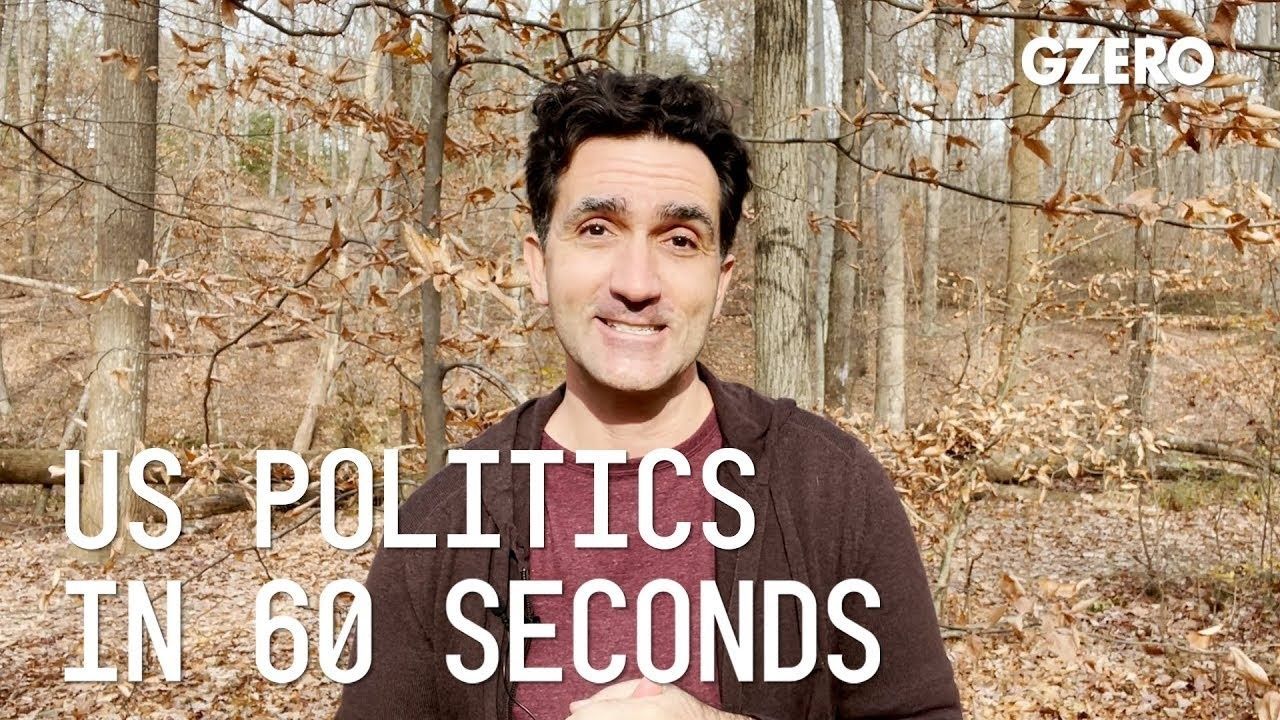US Politics In 60 Seconds
Two key dates before Inauguration Day; Biden's first moves

Two Key Dates Before Inauguration Day | Biden's First Moves | US Politics In :60 | GZERO Media

Get insights on the latest news in US politics from Jon Lieber, head of Eurasia Group's coverage of political and policy developments in Washington:
With the transition of power formally beginning now, what can we expect between now and inauguration day?
Well, there's a couple of important deadlines between now and Inauguration Day. The first is the December 14th meeting of the Electoral College, which will make the state certifications official and will make Joe Biden officially president-elect in the eyes of the US government. Another really important date is going to be January 5th, which is when Georgia has its runoff for the two Senate seats that will determine majority control in the Senate. If the Republicans win one of those seats, they'll maintain their majority, although very slim. If the Democrats win both of the seats, they'll have a 50/50 Senate with Kamala Harris as the tie-breaking vote and slightly more ability to enact Joe Biden's agenda next year. Also, between now and Inauguration Day, we're going to see Joe Biden announce his cabinet and senior staff. Most of whom will probably get confirmed fairly easily early, earlier ... Excuse me, later in January or early in February. And of course, we're going to see what President Trump is going to do next. I think that it's still a little bit up in the air what his post-presidency plans are. He has yet to concede the election. So, anything is possible from him, including a lot of new executive orders that could try to box Biden in and limit his options when it comes to economic policy, foreign policy, and social policy.
What can we expect out of the Biden administration's first 100 days?
Well, the biggest priority of the Biden administration first is going to be to confirm all of their cabinet appointees, and that should be pretty easy at the cabinet head level for the most part, even with a Republican controlled Senate. It's going to be a little more difficult once you get below the cabinet head, because then you're going to start to see some more ideological tests and some more policy concerns be flushed out by Republicans in the Senate. The second thing you're going to see is Biden start to undo as much of the Trump legacy as he can, and his primary vehicle for doing this is going to be executive orders, which is a lot of what president Trump used in order to enact policy. Expect Biden to reenter the Paris Climate Accord on day one and expect him to start undoing things like Trump's immigration orders and perhaps reversing some of his decisions on trade. Yet to be determined is if Congress is going to have fully funded the government for the entire year in December in the lame-duck session, and if they haven't, Biden's going to have to work out a deal probably in March or so to do that.
As expected, the Supreme Court struck down the bulk of Donald Trump's sweeping “Liberation Day” tariffs as illegal … and almost nothing changed.
Chris, an Army veteran, started his Walmart journey over 25 years ago as an hourly associate. Today, he manages a Distribution Center and serves as a mentor, helping others navigate their own paths to success. At Walmart, associates have the opportunity to take advantage of the pathways, perks, and pay that come with the job — with or without a college degree. In fact, more than 75% of Walmart management started as hourly associates. Learn more about how over 130,000 associates were promoted into roles of greater responsibility and higher pay in FY25.
Somewhere in the Donbas region, Ukrainian soldier Artem Bondarenko says he hasn’t slept through the night in months as he defends Eastern Ukraine.
In the latest episode of Vladimir Putin and Xi Jinping's hit wellness podcast This Authoritarian Life, we learn how positive communication patterns can break negative cycles in our relationships -- especially our relationships with Iran, Syria, Venezuela, and Cuba. #PUPPETREGIME